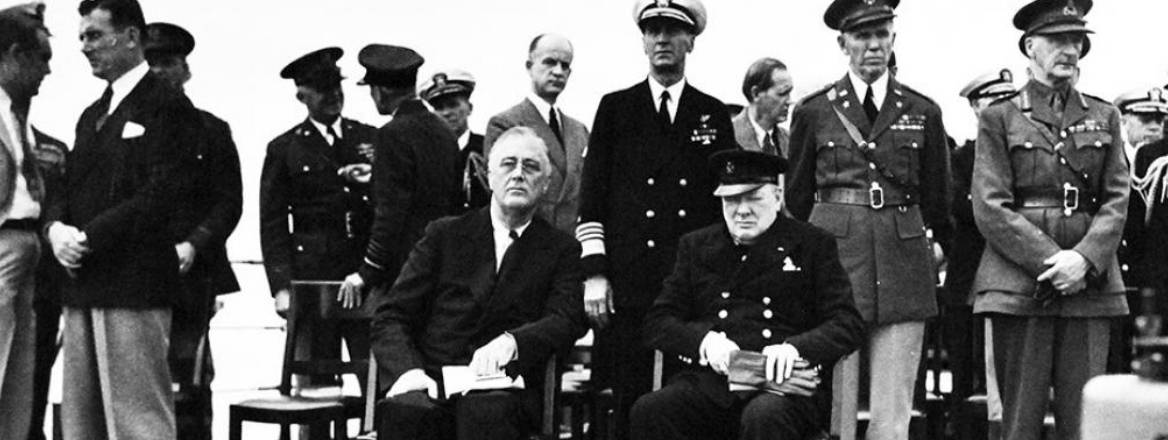Which Rules? Why There is No Single ‘Rules-Based International System’
The contemporary international order comprises a Universal Security System, a Western System and a Universal Economic System. These dynamically interact with the bargains and relationships established by the major powers.
Since the 2015 Strategic Defence and Security Review, there has been increased talk about the ‘rules-based international system’ (RBIS) in the UK’s foreign policy narrative. The concept has grown in popularity as the focus of national strategy has shifted towards Russia and China, after more than a decade of expeditionary state-building operations.
This paper argues that there is no single RBIS. Rather, the post-1945 international settlement led to the creation of three distinct RBISs – a Universal Security System (USS), a Universal Economic System (UES) and a more exclusive Western System – alongside a set of Major Power Relations. The rules of each of the three rules-based systems all reflect power-based bargains between their members and have been stronger as a result. Yet there have been tensions between the three systems, for example in relation to the security vulnerabilities created by globalisation.
Rules, per se, do not necessarily have a positive value. Rather, their worth depends on the extent to which they serve the interests and values of the states which sustain them. So although the relative peace the world has enjoyed since the end of the Second World War has been reinforced by international norms and treaties, the shorthand assumption that there is a single, universally acknowledged order, or that the world is now divided between those who obey the rules (ourselves) and those who do not (the others) has always been an over-simplification. For the UK and other Western states, the challenge should not be whether they are in favour of ‘the rules-based system’. Rather, it lies in identifying how rules-based systems can be used to help pursue national interests and values, including whether these need to be developed or replaced as circumstances change.
The central principles of the USS include the right of self-determination for former colonies and the prohibition of aggression between states (including no change of borders without consent), as embodied in the UN Charter. From their common origins in the wake of the Second World War, however, there has been tension between this system and the Western System, a set of much more ambitious (but exclusive) new institutions and norms that involved an unprecedented level of mutual commitments, shared sovereignty and joint decision-making, under US leadership, in the pursuit of common values and interests. Post-Cold War attempts to make the Western rules-based system the dominant element in the global system have – at least for now – failed. It therefore continues to live in uneasy coexistence with the USS, episodically pursuing human security over state security, and claiming that the US and its allies have the authority to decide how to pursue the former, rather than the UN Security Council where both Russia and China have a veto.
There is also growing strain in the international rules relating to economic governance – the UES – that have underpinned the trade liberalisation of the post-war, and especially post- Cold War, system. Support for economic globalisation is being eroded by growing inequality and nationalism within Western states, and it is also under threat from the re-emergence of competition with major non-Western powers, and with Russia and China in particular. China is increasingly viewed as exploiting its access to the international economy to pursue national security advantage and accelerate its growth as an economic and military superpower. In response, the US’s defence and security strategy is increasingly focused on competition with China; and the economic relationship with China – along with the role of the UES – is seen increasingly through a security lens.
About the Author
Professor Malcolm Chalmers is Deputy Director-General of RUSI and directs its growing portfolio of research into contemporary defence and security issues. His own work is focused on UK defence, foreign and security policy. His recent publications have included studies on: a ‘strategic scorecard’ of recent UK military interventions; cross-Whitehall spending allocations for defence, security and development; the UK’s Modernising Defence Programme review; prospects for, and implications of, a war in Korea; the UK and the North Atlantic; and implications of Brexit for UK foreign and security policy. He has been an Adviser to Parliament’s Joint Committee on the National Security Strategy since 2012, and was a Senior Special Adviser to Foreign Secretaries Jack Straw MP and Margaret Beckett MP.
Note: A minor update was made to the pre-matter of this paper on 11 April 2019.
WRITTEN BY
Malcolm Chalmers
Former Deputy Director General, RUSI


